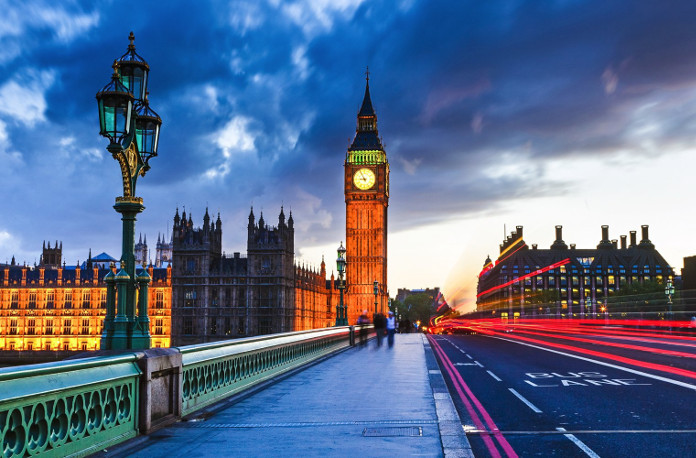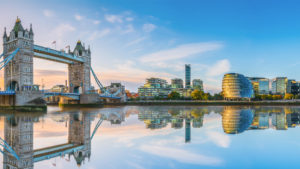The UK is one of the most popular places for Indians and NRIs alike for buying property. If you’ve finally decided to take the plunge and are planning on buying property in the UK, chances are you’ll be needing some assistance.
Property investors in the UK have done extremely well for foreign investors in the past, and it is no surprise that it remains one of the most popular places for Indians buying property abroad. So, whether you’re searching for a place to permanently move or just a place to buy a vacation or a second home, the UK is a great place to start.
Nevertheless, should you choose to take this leap, you should explore all your options, and think your decision through very carefully before buying property in the UK. To give you an idea of what to look for, here are a few suggestions to get you started.
The key to Buying Property in the UK?? Location! Location! Location!
First of all, select a location you would like to move to. Use your heart as well as your head. If you buy a property that proves to be an unsound investment, it won’t be such a devastating blow if you purchased the property in a place you love.
In other words, it’s important to choose a location that you love and that can accommodate all your needs.
In fact, the current economic slowdown in London means that you can buy a property at a lower price than usual. Also, London is a great option since you will find considerably lower interest rates for a mortgage in the UK than in India. It’s no secret that interest rates for home loans in India are difficult to keep up with.
However, don’t just decide to buy property in London because it’s so popular. If buying property in London is a lifelong dream, then that’s fine. But, don’t forget that the UK consists of many other smaller cities and quaint little towns and villages. London is a great place to start, but you should also explore other options before making your final decision.
In addition, it is important to note that whilst the property market in London (and to some extent, the whole of the South East of England), has seen house price slow down, in other areas, such as the Northern parts of the country such as Manchester, Birmingham, Liverpool and Leeds, property investors are seeing very healthy capital returns on their investment.
Find the right property
Now that you’ve found the right location, it’s time to find the perfect housing. Figure out how much you want to spend on a house or flat. Don’t overstretch your funds. Remember, you will also need to cover your deposit and your mortgage fees.
Researching different locations and different tyypes of properties has become much easier for Indian residents and NRIs thanks to the internet. There are several websites, such as Rightmove, which offer investors the choice of thousands of properties to choose from, and so initial research can be made using these sites.
After you have narrowed down your search, you can contact the agents, and make arrangements to view the properties.
Alternatively, if you are looking to purchase a brand new property from a developer, you can contact the developer directly. This is often a better investment, because the developer will often give investors a substantial discount in order to quickly sell sufficient units inorder to be able to start construction on the development.
Process of Buying Property in the UK
The legal process of buying a property in the UK is a fairly straightforward process for Indians and NRI’s. The key point to note is that there are no restrictions on Indians purchasing property in the UK, and the process is identical as for UK nationals.
The first step is make an offer in the property, and have it accepted. This process will be done through the estate agent.
Find the right mortgage
After you have had your offer accepted, the next stage is to find the right mortgage, if you need a loan to buy your property in the UK. Finding the right mortgage is time-consuming, although the good news is that there is a wide range of mortgages available for UK non residents. Hire an IFA or a mortgage broker to help you with this step. Also, you might have to pay a booking fee in order to reserve the mortgage of your choice.
Organize a survey on the property
If you are buying property in the UK which is not an ‘off plan’ new build property, then it is highly desirable to get a survey carried out on the property, which will highlight any structural defects the property has. In fact, if you are getting a mortgage to fund the purchase, the bank will insist on a mortage, and probably use their own recommended surveyor to carry out the survey (and then pass this cost on to you).
Exchange of Contracts
Provided there are no adverse findings in the survey, then you will proceed to a term known as ‘exchange of contracts’. You will need to have instructed a solicitor to prepare the necessary documents and carry out various searches to ensure that everything is in order. At this stage, you will pay a deposit to the solicitor (who will hold it in a designated client account), and you will arrange a date for ‘completion’, at which time the property will legally be yours.
Familiarize yourself with the taxes
This is important because there are 5 taxes you will have to familiarize yourself with before you decide whether you will be buying property in the UK.
1. Stamp duty tax: This is an indirect tax that’s put on the property you purchase based on the price you paid for the property. The percentage ranges from 1%-4%. Ultimately, the 4% tax is for properties that cost over 500.000 pounds.
2. Council tax: Also an indirect tax, it comes from the authorities and the rate depends on the location, purchase price, and also the value of the property you purchased.
3. Income tax: This is a direct tax. If the property you purchased is to be used as an investment, and if you rent out the property, then you will be subject to income tax on the earnings. However, if you actually live on the property you purchased, this tax shouldn’t concern you.
4. Capital gains: This one is also a direct tax. You will need to pay this tax if you sell your property, and you earn some money in the process. However, foreign non-residents buying property in the UK are exempt from this tax.
5. Inheritance tax: If you’re an investor with assets that aren’t in the UK, you will have to pay this direct tax. However, if you are a non-resident, you won’t have to worry about paying it.
Conclusion
Buying property in the UK continues to be a good investment for Indians and NRI’s alike. Whilst the capital returns in London are not what they used to be, they are other parts of England which continue to offer excellent return on capital. With the right research, and a reputable real estate agent, you are sure to find the real estate investment which is right for you.




